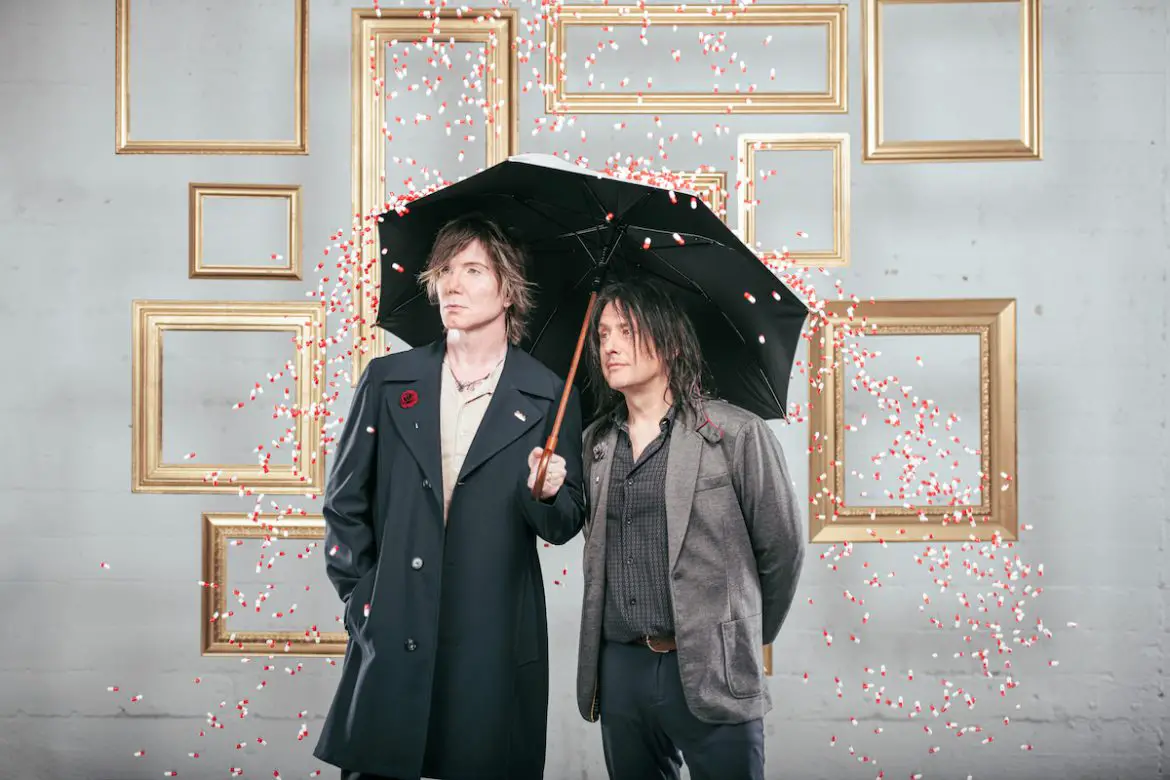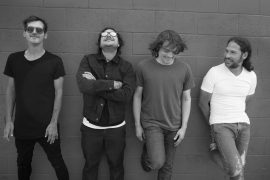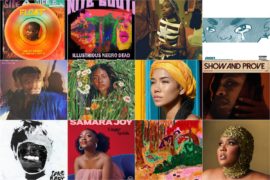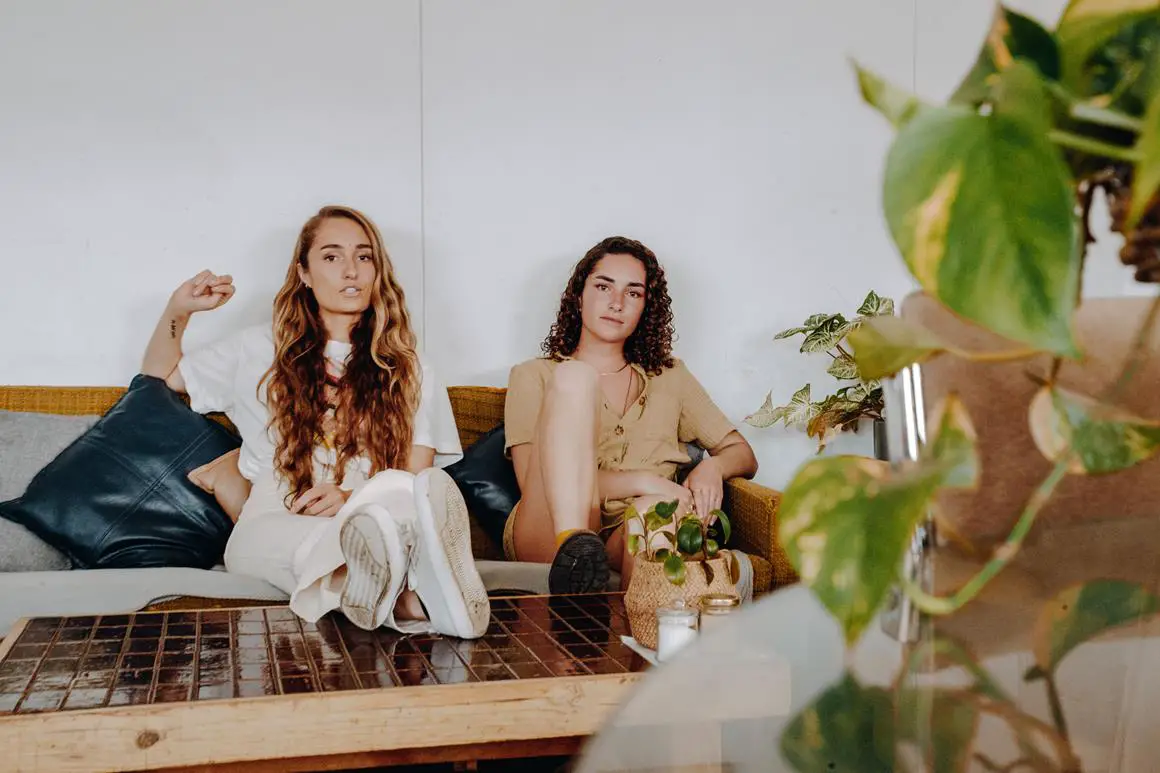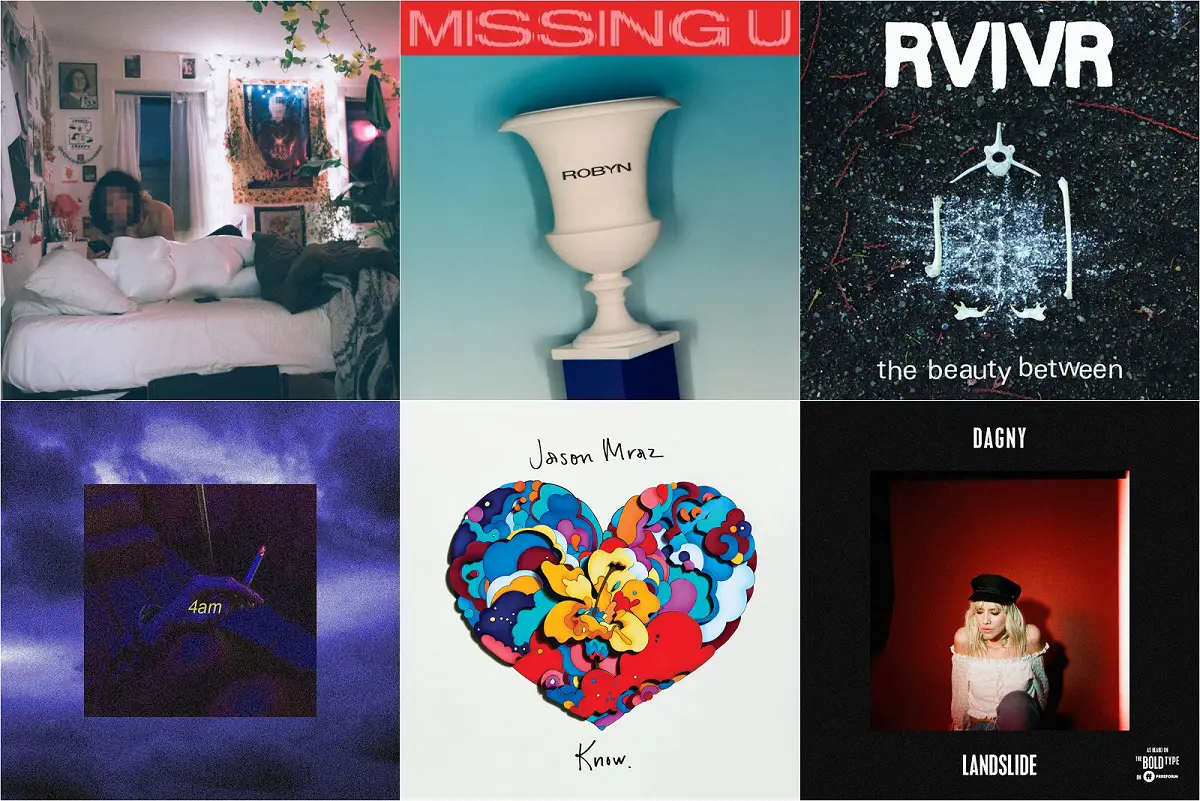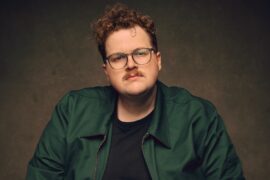With 2020 marking Goo Goo Dolls’ 35th trip around the sun and the 25th anniversary of their breakthrough album ‘A Boy Named Goo’, now feels like a perfect moment to look back on an impressive career that has withstood the test of time. Founding member Johnny Rzeznik dives into Goo Goo Dolls’ early material and later successes, reflects on their first hit single “Name,” and shares stories behind the band’s festive new holiday album, ‘It’s Christmas All Over.’
Stream: “Name” – Goo Goo Dolls
From upstate New York garage punks to worldwide superstars, to alternative rock’s elder statesmen, the Goo Goo Dolls have seen fire and rain over the course of their 35 years.
Fame has graced them and time has humbled them, but the latest entry into the “classic rock” canon remain as active as ever, to the point where they are still celebrating new firsts. Goo Goo Dolls released their twelfth studio album Miracle Pill in September 2019, and more recently released their first Christmas album It’s Christmas All Over, a collection of original and classic holiday songs.
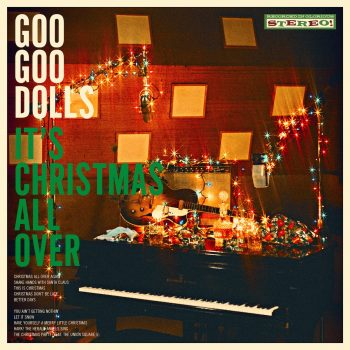
“It’s a little bit different now than it used to be, because I’m at a point in my life and my career where I’m not trying to get the big slam dunk hit on the radio anymore,” reflects Goo Goo Dolls’ frontman and guitarist Johnny Rzeznik. Rzeznik formed Goo Goo Dolls with friends Robby Takac and George Tutuska, the latter of whom left the band in 1994 shortly before they released their breakthrough fifth album, A Boy Named Goo, in ’95.
Most folks recognize Goo Goo Dolls for their #1 hit single “Iris” (originally written for the City of Angels soundtrack) and other songs off 1998’s 4x multi-platinum album Dizzy Up the Girl. The group’s sixth and most successful record to date transformed them into a household name; several of that album’s songs, including “Slide” and “Black Balloon,” remain staples of the band’s live set to this day. While Dizzy elevated and solidified the Dolls’ name and status, they had already broken into the mainstream three years earlier thanks to the popularity of “Name” and its parent album A Boy Named Goo (which reached 2x multi-platinum status in summer 1996).
With 2020 marking the 25th anniversary of A Boy Named Goo as well as the band’s 35th trip around the sun, now feels like a perfect moment to look back on an impressive career that has held up, and continues to hold up to the test of time.
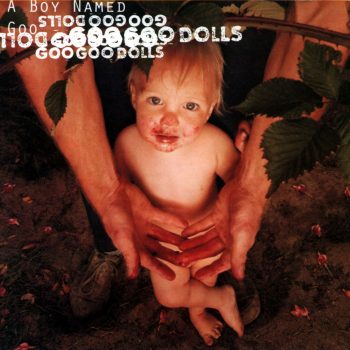
When Goo Goo Dolls debuted in 1987 (for context, the same year Guns N’ Roses debuted with Appetite for Destruction, U2 released The Joshua Tree, Michael Jackson put out Bad, and Rick Astley released his first single, “Never Gonna Give You Up”), they were a punk rock band making loud, raucous music with the amps turned up to eleven.
Rzeznik asserts that the Goo Goo Dolls have always beat to the tune of their own drum, making the music that they wanted to make regardless of label pressure or other external forces. “We’ve always done that, and we’ve gotten into several pretty heated discussions with certain people who were at the labels that aren’t there anymore. I’m still there, and they’re not,” he says. “So in retrospect, I think I won that argument.”
In 1987, Robby Takac led the band as its primary vocalist, injecting feverish and youthful angst into a plethora of dramatic overhauls on par, at least energy-wise, with the urgency of Dookie and upheaval of Bleach. Johnny Rzeznik’s emergence as Goo Goo Dolls’ principal lead vocalist wouldn’t truly come until 1993’s Superstar Car Wash, a set of alternative outpourings that gave the band their first single in the anthemic outcry, “We Are the Normal.”
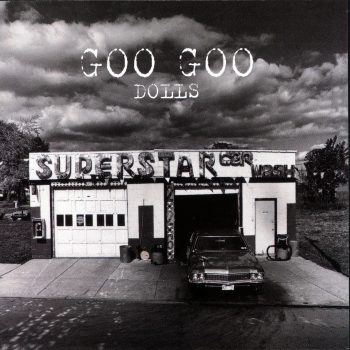
“To me it was the first real record that we made,” Rzeznik says in reflection, “I was really starting to come into my own as a songwriter. The production is kind of dated on it now, but the songwriting was so tight. I really worked hard to make these tight concise songs. And it was a lot of fun doing that record too, I remember… Although the producer wound up hating us,” he laughs.
By far the Dolls’ most underrated album from that era – far overshadowed by its more popular successors of the late ’90s – Superstar Car Wash strikes a balance between the reckless garage rock and punk of the band’s early days, and the more refined, dynamic, and mature arrangements that would shortly follow.
Everything changed for the band upon the release of A Boy Named Goo‘s third single, “Name.”
And even though the moment passed me by
I still can’t turn away
‘Cause all the dreams you never thought you’d lose
Got tossed along the way
And letters that you never meant to send
Got lost or thrown away
And now we’re grown up orphans
And never knew their names
We don’t belong to no one
That’s a shame
But you could hide beside me
Maybe for a while
And I won’t tell no one your name
And I won’t tell ’em your name
– “Name,” Goo Goo Dolls
“I think the song “Name” has held up over the years,” Rzeznik tells Atwood Magazine. “We were kinda stuck between places, it’s like we were hanging on to parts of our past and trying to integrate them into what I felt was becoming my future… And I had watched other bands evolve, and I felt like, ‘Why do I have to do the same thing over and over and over?’ And ultimately we wound up taking a lot of shit for that record because it got successful. Nobody likes when your favorite secret band gets big, because you’re no longer theirs and you’re everybody’s.”
Success also meant Goo Goo Dolls’ music was subject to greater critique. “The critics that write about you when you’re not successful, they love you and they champion you, but then you get successful and then everybody’s taking a shot at you… It’s so strange because in the process, you have to be so vulnerable, and you have to be so open and honest and get it out, and then when it comes down to putting it into the world, you have to develop armor.”
I’m so grateful that that song came into my life, because it truly changed my life. And I got to live my dream.
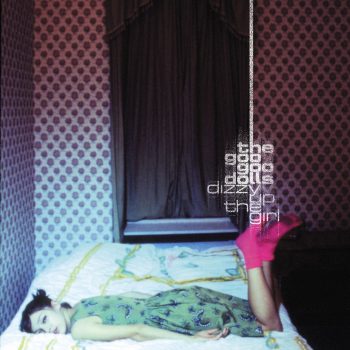
For a while after “Name,” Rzeznik and co thought that might have been their one shot. “I never expected it to continue,” he explains, “and we’ve had a lot of ups and downs since then. But we’re still here, and if you look at a lot of bands that came up with us, there are not many left.”
If Goo Goo Dolls have one thing on their side, it’s sheer longevity.
Like U2 and Radiohead, Goo Goo Dolls have withstood the tests of time, adapting and incorporating new sounds and styles in their oeuvre while by and large staying true to themselves. Goo Goo Dolls own that sentimental, spirited itch that, since 1993, has given their music its special edge. 2019’s Miracle Pill was hailed as a “return to form” by NME, and this winter’s It’s Christmas All Over adds two highly contrasting holiday originals in the heartfelt and tender “This Is Christmas” and the more boisterous and jovial “You Ain’t Getting Nothin’.”
Atwood Magazine sat down with Goo Goo Dolls’ founder and frontman Johnny Rzeznik to look back on 35 years of rock and 25 years of “Name.” In our conversation, Rzeznik dives into Goo Goo Dolls’ early material and later successes, reflects on their breakthrough record, and shares some stories behind Miracle Pill and the band’s festive new album, It’s Christmas All Over. Rzeznik also talks about his continued reverence for the late Tom Petty, and goes into what he’s been doing to help others during the COVID-19 pandemic.
As for Goo Goo Dolls’ plans for the next 35 years?
“I haven’t looked out that far, but I’m hoping to be living in a retirement community somewhere,” Rzeznik jokes – somewhat. “Right now we’re just trying to get through this, and then next summer, hopefully, we’ll be able to reconnect with our audience. Right now, we’re really just trying to keep it together. Keep everybody together, and try to spread a little bit of fun out there.”
Goo Goo Dolls are still going strong. Whether or not you consider them a part of the “classic rock” pedigree, at the end of the day, it’s just a “name.”

A CONVERSATION WITH THE GOO GOO DOLLS
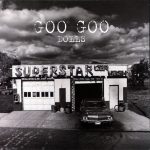
Atwood Magazine: Johnny Rzeznik, it's great to meet you! First of all, I want to thank you – I caught the band's livestream gig the other week, and I have to say between the energy you all gave to it and the crowd noise, it was the closest thing to a real in-person concert that I've ever seen and felt in a long time. What was that experience like for you?
Johnny Rzeznik: I thought it was amazing, it was really fun to get the whole band together and play again. We had to get together and rehearse for about a week, ’cause we hadn’t played together as a unit in months, and… But I was really surprised when in my inner monitors when I started hearing crowd noise. I’m like, “That is so weird.” [chuckle] It’s like… But, I guess that’s what people do, you gotta put the crowd noise in.
It felt authentic.
Johnny Rzeznik: Yeah, I know, it definitely tricks you.
It might have actually helped to keep the energy up. We host virtual concerts with artists playing from their bedrooms, and you see it – you see the loneliness. You see that they're trying to connect with the screen, but it's really hard to do that.
Johnny Rzeznik: Yeah, that was… Yeah, it’s really tough now to do this, because if you’re being smart, you’re spending a lot more time alone and at home, but it’s difficult, it’s like… And I think that artists can actually be in some ways, very helpful at times like this, give people a little hope, a little comfort, or just a little distraction for a little while, something to enjoy. And so it’s… I’m grateful that I’m getting to do so much, I’ve been really busy doing a lot of Zoom, little mini concerts. And I actually got a couple of gigs. People just call and say, “How much would it cost for me to just watch you play? Just play five songs.” And the PayPal goes BING! [chuckle]
I think we're on the verge of a new addition to the music industry, and I hope that it helps artists of all sizes.
Johnny Rzeznik: Yeah, I hope so too. That livestream thing we did, that was the first of these… It’s all gaming technology, and it’s crazy – it’s so beyond anything in the music business.
Switching gears, if it's alright with you, one of the things I'd love to talk about today is legacy. 2020 marks Goo Goo Dolls' 35th anniversary, and while it doesn't feel prudent to be all that celebratory this year, it's a milestone that finds the band as active as ever with two consecutive album releases in two years. So, let me ask you point blank, what are your and Robby's goals for the band at this point in your career? Do you have any dreams for the next 35?
Johnny Rzeznik: Next 35 years? Well, I hope that… Well, I haven’t looked out that far into the next 35 years, but I’m hoping to be living in a retirement community somewhere in 35 years. Right now we’re just trying to get through this, and then next summer, hopefully, we’ll be able to reconnect with our audience. And it’s like this time, and doing these virtual meet and greets and all this Zoom stuff that we’ve been doing, it’s like we’re starting to see people that we know who come to our shows, and it feels good to see them again, because they’ve become part of an extended family. And a lot of relationships and groups of people have gotten together based on their common interest of our band, and so it’s nice to see them.
It's a wild thing to think about being responsible for a marriage, being responsible for a family, that's what... Thirty-five years doesn't have the same glitter as 25 or 10.
Johnny Rzeznik: No, 35. [laughter] It’s… Yeah, it was interesting, there were obviously rough patches during that time. We decided if we’re gonna be in this for the long haul, that you have to be… Your career is gonna go like this, and like this. I have someone that I trust very deeply who is going to tell me when it’s over. And when they just say, “It’s time to hang it up, John.”… But right now, we’re really just trying to keep it together. Keep everybody together, and try to spread a little bit of fun out there.
That's a lot of humility that you're showing.
Johnny Rzeznik: Is my humility showing? Oh boy, sorry. I’ll throw a little bit of arrogance at you next.
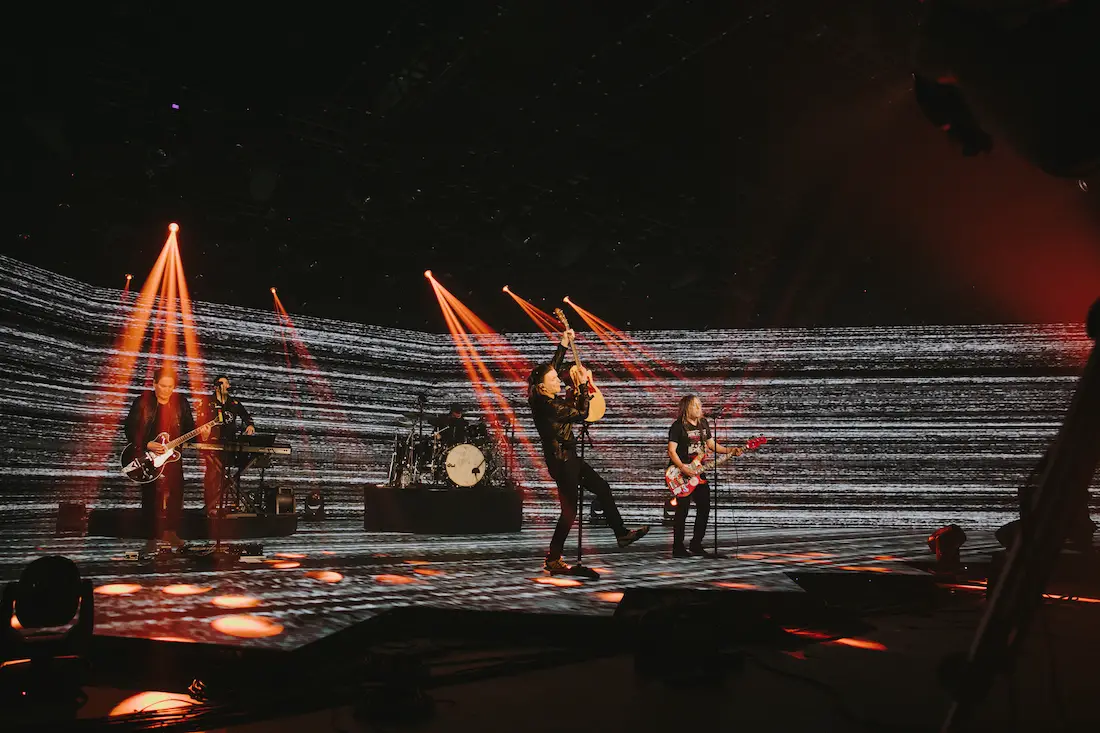
Goo Goo Dolls started off as a garage-y, no fucks given punk band, and I know many people still cherish those first four or five albums. How do you look back at that time in the band's life, compared to where you've been more recently?
Johnny Rzeznik: I look back in it as something that a 20-year-old kid does when they make a record. And the 22-year-old kid, and the 24-year-old kid. And I started to learn to play my instrument more and I started really broadening out my record collection and started listening to a lot of different kinds of music. And we just kept doing what we were doing and doing it and doing it and doing it, then finally on the fifth album it was boom, we finally got a hit. And that’s when the weird stuff started happening, but it’s like you have to accept it. I think the biggest thing that Robby and I have learned is to respect each other’s boundaries and our limitations and we understand what our roles are in this band. And we work to fulfill that part of our job as best we can.
One of the big things for you is you came into your own as lead vocalist. You were not the lead vocalist for such a long time.
Johnny Rzeznik: No, I wasn’t.
The voice is one of those things where if you keep working at it, it just gets better with age. What's your experience been lately? Do you continue to try to push your boundaries as a vocalist?
Johnny Rzeznik: Yeah, I made a commitment to really start working with a vocal coach who’s in the city, a guy named Don Lawrence, who’s like the greatest vocal coach ever. And you know Lady Gaga, just Bono and all these great people. ‘Cause I wanna learn to use more of my voice. I wanna learn to be able to sing longer and higher and stronger, and get so comfortable with the muscles and everything that you can really use them to emote more. So that’s something that I wanna get back to once this pandemic’s over.
This is something new for me but I worked with Eric Vetro in Los Angeles who’s a really, really fantastic vocal coach. Really, really amazing vocal coach, and just probably the sweetest human being and you leave there so confident that you just go and just kick the shit out of whatever gig you have. He’s really good for my head. And I work with another guy named Dave Stroud, and he’s very more like… Going to him is like going to the gym with a trainer. And it’s really good. But I think the two kind of complement each other.
Speaking about your older records, one album I started getting more into recently is, Superstar Car Wash. I feel like that might be Goo Goo Dolls' most underrated record. How does that one fare for you?
Johnny Rzeznik: You know what, to me it was the first real record that we made. Because I felt like the songwriting… I was really starting to come into my own as a songwriter. The production is kind of dated on it now, but the songwriting was so tight. I really worked hard to make these tight concise songs. And it was a lot of fun doing that record too, I remember. Although the producer wound up hating us. [chuckle]
You can't love everybody.
Johnny Rzeznik: Can’t love everybody. He really hated us by the end of the… But we were obnoxious.
Well, you got a hit out of it anyway, or at least you got a single in ''We Are the Normal''...
Johnny Rzeznik: Yeah, you know. He was a great producer, but… you know…
You’ve released a considerable amount of music in your lifetime. Are you the kind of artist who's always looking forward or do you ever go back and spend time with those older records we're talking about?
Johnny Rzeznik: I only go back to the old records when I’m beginning to start writing for a new record. So I can sort of get a historical context, like “here I was. That was pretty cool. That was a nice little jump we did, or that was a bad move.” And then [chuckle] kind of listen to it and try to assess where my head is at. It’s a little bit different now than it used to be, because I’m at a point in my life and my career where I’m not trying to get the big slam dunk hit on the radio anymore. The world has changed so, so much. It’s like, how do you… I mean the path was very straight at one point in time, but now it’s… And I look at a lot of young artists now, excuse me, and they have to have a clothing line and make tea, and it’s just they create this brand, and the music is almost like a hook to get you into the store to buy the rest of the crap, and I just… And what I find a lot, there’s… Don’t get me wrong, there’s so many great young artists out there and bands that I really, really love, and I think… I hope that they are heard as much as what the current “pop music” is, but we’ll see what happens. I mean the world has just changed so much.
What you're kind of talking about is this idea that some artists, especially if you are signed to a label, you try to make a hit. And where Goo Goo Dolls are now, you're making music that you want to hear that you want to make.
Johnny Rzeznik: Yeah, we’ve always done that. We’ve always done that and we’ve gotten into several pretty heated discussions with certain people who were at the labels that aren’t there anymore. I’m still there, and they’re not. So in retrospect, I think I won that argument. But they definitely try. I’m like… My question is, if you’re gonna sign us, then why do you wanna change it immediately? Why… And that seems to be something that has probably always gone on, but it just seems more blatant. A lot more, what they call naked artists now, that don’t write. And so they’re relying on this huge infrastructure and this group of people, writers and make-up artists and dancers and just crazy stuff, and it becomes this very synthetic thing.
It's a circus, it's all for show.
Johnny Rzeznik: It’s all for show. I mean it’s show business. That’s what it is. We are in show business.
Yeah, sometimes I like there being a little meaning behind it, a little substance.
Johnny Rzeznik: It’s out there. I mean guys like Sam Fender, great, great songwriter, just incredible. I’m just like, “Wow, this guy is the Springsteen of his generation.”
That's high praise.
A Boy Named Goo
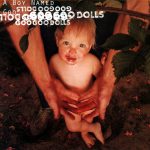
One thing that hasn't been talked about too much is that this year marks the 25th anniversary of A Boy Named Goo, a double platinum album that changed the game. How do you feel this album has held up over the years?
Johnny Rzeznik: Well, I think the song “Name” has held up over the years, and we were still… We were kinda stuck between places, it’s like we were hanging on to parts of our past and trying to integrate them into what I felt was becoming my future… And I had watched other bands evolve, and I felt like, “Why do I have to do the same thing over and over and over?” And ultimately we wound up taking a lot of shit for that record because it got successful. Nobody likes when your favorite secret band gets big because you’re no longer theirs and you’re everybody’s. And what I also learned was that critics don’t write about… I mean the critics that write about you when you’re not successful, they love you and they champion you, but then you get successful and then everybody’s taking a shot at you. And that was kinda hard to deal with, but you gotta have… It’s so strange because in the process, you have to be so vulnerable, and you have to be so open and honest and get it out, and then when it comes down to putting it into the world, you have to develop armor.
I've never thought about it like that, especially when you're really trying to put yourself into the music.
Johnny Rzeznik: Yeah, yeah, you have to… And that the safety of the studio is great. But I’ve learned over the years, it’s like, I’m not here to please everybody, I can’t. And times that I have tried to please everybody, it just doesn’t work and you wind up throwing it out because it’s just like, “I can’t do that.” It’s like people are like, “When are you gonna write another ‘Iris’?” It’s like never, never. “Why?” Because I was a different person then and I was living in different circumstances, and it was a certain time in my life and it was very appropriate. But would I like to write another song that got that big? Yeah, I would love that, that would be amazing. But I’m kinda becoming an elder statesman in music, I mean people are coming to me and asking me my opinion, and I’m like, “Pfft. Don’t ask me my opinion.” But this is very much a young man’s game, and think about it, 35 years. It was 35 years from 1940 to 1975. How much did music change? So you got 1940, you got Benny Goodman and 1975, you got Led Zeppelin and disco. Who would’ve thought?
Those are two polar opposites - you're totally right. I realize that “Name” remains a staple of Goo Goo Dolls repertoire to this day, as does a lot of your next album, Dizzy Up The Girl. The experience of playing these songs night after night, year after year, decade after decade… does your music bring up anything different than it did in the past? Does a song like “Name” have any new resonance for you nowadays than it did when you first wrote it or released it?
Johnny Rzeznik: Well, it brings me back to the time that I wrote it. Though it’s kind of… There’s always always a little hint of that kind of emotion that I initially had when I wrote the song. But performing it live, to me, it’s like you play the first bar to the song, and then you hear the rise of the audience, and then I remember why I’m there. I’m there to entertain these people. And it gives me gratitude. I know it sounds, maybe it sounds whatever, but I truly mean it. I’m so grateful that that song came into my life, because it truly changed my life. And I got to live my dream. And I never expected it to continue, and we’ve had a lot of ups and downs since then, but we’re still here, and if you look at a lot of bands that came up with us, there are not many left.
No, they're not. A Boy Named Goo earned a lot of controversy around its album cover. Maybe it's just me, but doesn’t an offensive album cover feel like such an antiquated concept today?
Johnny Rzeznik: It’s so ridiculous. It’s like, the number one song in America is “WAP”. [laughter]
This is a battle that you had to fight back in the '90s. More power to you: To think that this was any bit of a problem…
Johnny Rzeznik: Yeah, it was bizarre. I think it was a Walmart thing or whatever. I mean, for anyone to look at that as anything other than just a beautiful, innocent kid running around naked in his dad’s garden eating berries off the bushes. It was just beautiful and there was a whole thing. Yeah, it was like, “It’s blood and they’re pedophiles!” [laughter] And it’s like, stop.
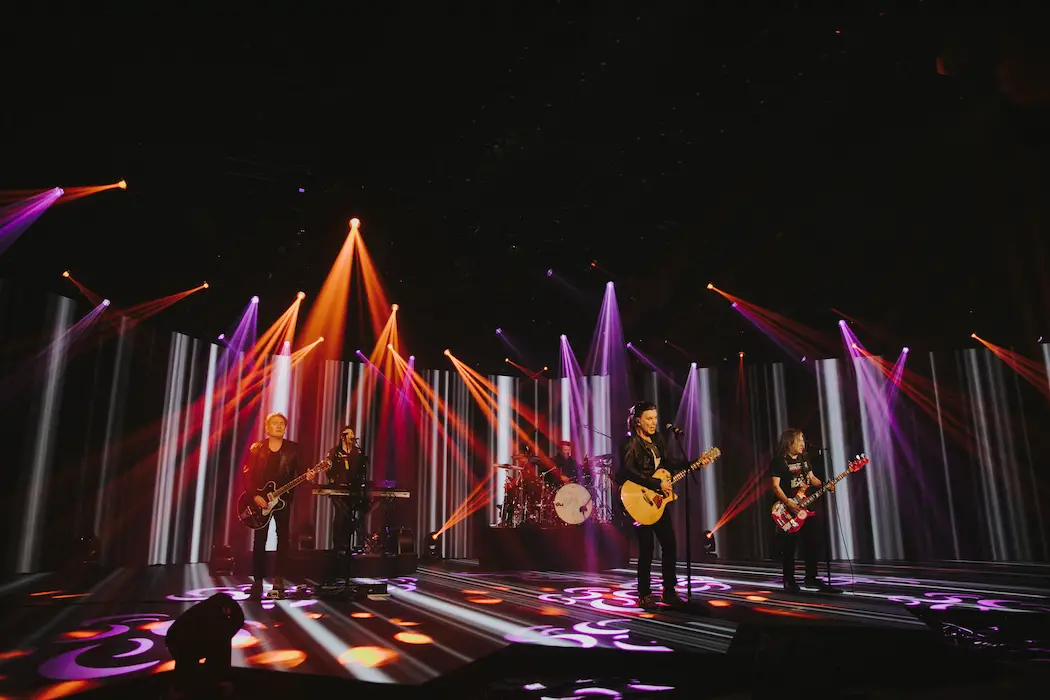
Nevermind had already been out for a few years at that point. I'd say that album cover's a little bit more revealing than any other album.
Johnny Rzeznik: Yeah. But you know what? They were Nirvana. We’re the Goo Goo Dolls. They’re Nirvana. That’s…
I get it... I listen to your record, your first album, the eponymous one came out the same year as Guns N' Roses’ debut in '87. I’d argue that Guns N' Roses' record is a classic in a very timeless sense, but I think your album hit harder. I think it hit very much harder than theirs, just from a pure “who's getting the led out” standpoint.
Johnny Rzeznik: Yeah well, thank you very much. Granted they did a little bit better than we did.
(laughing) but who's still together?
Johnny Rzeznik: I was blown away by that album when I heard it ’cause it really wasn’t my thing, but it was so much better than all the other metal that was out there. It was just like I looked at those guys and I heard them play and just went, “This shit’s undeniable, man. This is real.” But…
“Name” aside, do you have any highlights of a A Boy Named Goo that have special resonance or significance for you?
Johnny Rzeznik: I don’t even remember what the songs on that album are. [chuckle] I haven’t looked at it in so long. “Long Way Down,” oh and “Naked”. That song was great. We still play that song. That sound is great. “Flat Top,” which I thought was a slightly political kind of song. I thought that was really great. And “Eyes Wide Open.” I really like that song. God, yeah, there were some really good songs on that record.
I think the two albums before Dizzy Up The Girl get really overshadowed by it; granted, you played almost every song from that album at your recent show; that record still resonates the most, and that's what pop music is: It's popular. Would you ever consider doing a live performance of Miracle Pill or something to that effect, to showcase your new album's material with a finer spotlight?
Johnny Rzeznik: I would do it. Yeah, I would do that. I think Miracle Pill is a fine record. And this record really taught me the really enormous power of collaboration because for many, many years, I just sat in a room by myself writing. And I was setting up my home studio, and I was looking out the window of the bedroom, and I was just like, “I can’t sit in here for six months by myself doing this.” So I have some really good friends that I love writing songs with, so we get together and we just knock ideas around and have a lot of laughs and come out with some good material. I was always such a huge fan of Sam Hollander, who is just such an incredibly talented songwriter, and Derek Fuhrmann, and Drew Pearson. These guys are just… They’re amazing, and it’s amazing to come into a room with an idea and say, “Hey, check this out.” [vocalization]
And then have them go, and then start humming a melody over it or, “Hey, can you speed it up, slow it down.” And then this back and forth. And it’s… To me, it’s more fun. But on this album, I’m getting back to writing more on my own, ’cause I think I need to, I think I need to.
Are you talking about stuff that you're making post-Miracle Pill?
Johnny Rzeznik: Yeah, post-Miracle Pill. Well, I’m already… We did the Christmas record and now I’m… And we’re mixing the live… Like Christmas special, which is crazy. I can’t believe we did that. It’s like an old school Christmas special from the ’70s, but it’s done in this crazy, super high tech, augmented reality thing. So I’m looking forward to seeing what the hell that turns out like. I think it would be fun. We had a lot of fun doing that, it was a long day but it was good, it was really good. But yeah, and I’m also… Just right now, I’m in this phase I call collecting ’cause I just sit with an acoustic and a telephone, or I went in the studio for about a month and I just kinda just fleshed out little ideas and put little drum machine beats on them. And Dan Wilson, who is one of my favorite songwriters, he says he likes to get a fully buskable version of a demo. So basically what you could go stand on a street corner with your guitar and a bucket, and see how much change you can collect.
But I thought, “Wow, that’s a really great idea,” because it’s something very… A bit more concise that you can present to a producer. You know I’m doing a lot more producing on my own now ’cause I just feel like it. I have a great engineer and I can say to him, “Hey, remember that, remember that Bowie record where they had this weird guitar that did this thing? Let’s listen to that song. How did they do that?” And he’ll know. And I’m like, “Let’s do that.” So it’s fun.
Miracle Pill
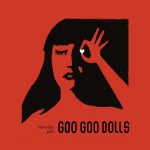
You get that much more ownership over things. That's... You're teasing me with the idea of more material already. We've seen two Goo Goo Dolls records in two years, and if you count the deluxe version, three more songs on top of that. I wanna talk about Miracle Pill a bit longer, because I really think that's a beautiful record head-to-toe. NME called it a “return to form,” something along that line. It's a 14-track album. How do you feel this record captures who the Goo Goo Dolls are today?
Johnny Rzeznik: Well, I’ve been in a really great place. Just my own life has been in a really great place and it takes a lot of work, as you know, to get your life into a good place. You’re a writer, you know how terrifying it is at times, it’s just like, “What? What I’m I gonna say?” It’s a difficult thing but I think we’re in a really good place as people right now. I’ll tell you one thing, having a kid sure puts everything into perspective.
And you gave her a couple of shout-outs during the concert.
Johnny Rzeznik: Yeah. You know what, man? She’s the funnest person I know. I can hang out with her all day and just listen to her talk about this crazy world and her perception of the world is just insane. And I love it ’cause she just… I just sit there and I ask her a question, she just takes me into a place of just complete purity, and where your id is just allowed to run free. And that inspires me to be creative. It’s amazing to watch her and how just naturally creative she is. And as we get older, that sort of freedom gets beaten out of us by our peers and society and… Just living, and it’s like, to be able to hang on to that stuff and to be able to get to do it and actually pay the bills, come on man. That’s pretty awesome. It’s pretty awesome.
One thing I appreciate is that, I think in your music, Goo Goo Dolls, you own your age. On your newer songs, and this is personal opinion, a lot of these songs dwell in a balance with nostalgia and this kind of learned desire to be better, learn from the past, learn from your mistakes. If there's a lesson to be taken from Miracle Pill’s songs, I would think it lies in self-awareness and humility.
Johnny Rzeznik: Wow. Well, that’s interesting. Wow, thank you, that’s really nice. I appreciate that. Yeah, I think one of the other themes that kinda comes through is on the album too, is the… As you get older, there are certain things that you miss about being younger and the lyrics of “Miracle Pills”, it’s like, “Could you just… It’s just I want… I need to get out of my own head fast.” It’s kind of the frustration, and it’s like, there is a lot of self-awareness and there is a big body of knowledge inside all of us who reach a certain age, but at the same time, you look toward the future, and you go, “Oh, shit! It’s not going to be as much fun as the first half.” And… But, you stay healthy. You stay healthy and being allowed to do what we do for a living, that keeps you young, keeps you healthy. Certainly not as wild as it used to be, but…
I heard about this place called The Villages down in Florida where anything goes... Once you get to senior citizen age, it sounds like a wild place, so if you...
Johnny Rzeznik: Jeez. It’s like senior citizen orgies and bingo. [laughter]
Ain't that the dream.
Johnny Rzeznik: I’ll be there man. That’s my big dream, saving up my money.
It’s Christmas All Over

But going back to those goals for the next 35 years, one that you can now strike off your list is releasing a Christmas album! Congrats on this release. How long has this concept or this album been in the works?
Johnny Rzeznik: Well, early, right at the beginning of this year, we were asked to do a song for some compilation, and then the pandemic hit and everything got really weird, and I’m like, “You know what? Let’s make a whole record. Let’s just make a whole record. Let’s make it fun. Let’s make it a little reflective. Yeah, of course, it’s gonna be cheesy in spots because it’s just… It’s Christmas, come on.” I didn’t do this, I just felt like this year was gonna be very, very difficult for a lot of people around Christmas time, and I’ve spent a couple of Christmases alone, and that is the worst. So, it’s like, this whole thing is kind of like a way to connect with people and maybe give them a little hope, make ’em laugh a little bit. I mean, my favorite song in the album is “You Ain’t Getting Nothin’.”
And we decided that the best way to… Instead of doing a stupid video, we found these guys in Chile and they’re like these hardcore Chuck Jones disciples, so they make these crazy slapstick comedy cartoons. So we’re gonna release a cartoon for “You Ain’t Getting Nothin'” coming up soon, and it’s hysterical, it’s funny. And it was fun to do to, to learn and experiment, and be able to work in an old recording studio, a lot of old equipment, using a lot of older recording technologies to get that more authentic kinda sound. And just mixing it to tape and things like that.
The record's a little jazzy at times. And you know sometimes I listen to it and I'm like, “Woah, the Goo Goo Dolls got jazzy!” It's great.
Johnny Rzeznik: Well, that was because Jimmy McGorman and Brad Fernquist are very educated musicians, whereas Robby and I are not. So, I didn’t play a lot of guitar on that record, which I’m sure everybody is aware of. If anybody’s ever seen me play the guitar. There’s no way I can play like that. So, it was just… It was fun to watch guys working at that level. Jimmy and Brad, I can go to Jimmy and Brad and go, “Hey! I want the horns to go… ” [vocalization]
And they’re like… Jimmy will play it on the piano, and then he’ll go and talk to the horn players, and then the horn player, “Okay,” and then I hear it coming back at me the way I heard it in my head.
Amazing.
Johnny Rzeznik: And that just blew me away, man, it blew me away. And I love all those records, I listen to, I listen to old swing records and all that kinda stuff, and bebop and jazz, and it’s fun. I can’t believe how insanely difficult it is to sing those songs ’cause it’s like they change keys and the intervals between the notes are just crazy. And I’m a rock singer, I’m not used to that, and that was a long day standing in front of a microphone, ’cause it was just… I was lost at times.
We talked earlier about you're growing as a vocalist – that probably did some help for you right there.
Johnny Rzeznik: Yeah. It did help me a lot because it really bent my brain in a different direction. So there’s obviously some growth that came out of that, and that was one of the things too, I was like, “I need to start… I need to start working with my voice to try to make it better.” I’ve learned a lot of survival skills to get through tours and all that, but I just wanna be better than I am.
I commend you for having that goal. Some artists here in New York City hold special holiday concerts or have a holiday set list they play in December. Have Goo Goo Dolls ever done something like that, or is this a new world for you?
Johnny Rzeznik: No, it’s a new world for me. If somebody wants to come see us do the album and do that whole thing, if there’s… If we can get out of the frigging house and do it, it’d be great. But you know what I love about it, it’s like the album… I don’t know, it may be forgotten or it may be one of those things that stays green forever, and that’s what I love about holiday albums. So I go back and I have my big holiday playlist, it’s all of Nat King Cole and all the really good stuff, and the stuff is always green.
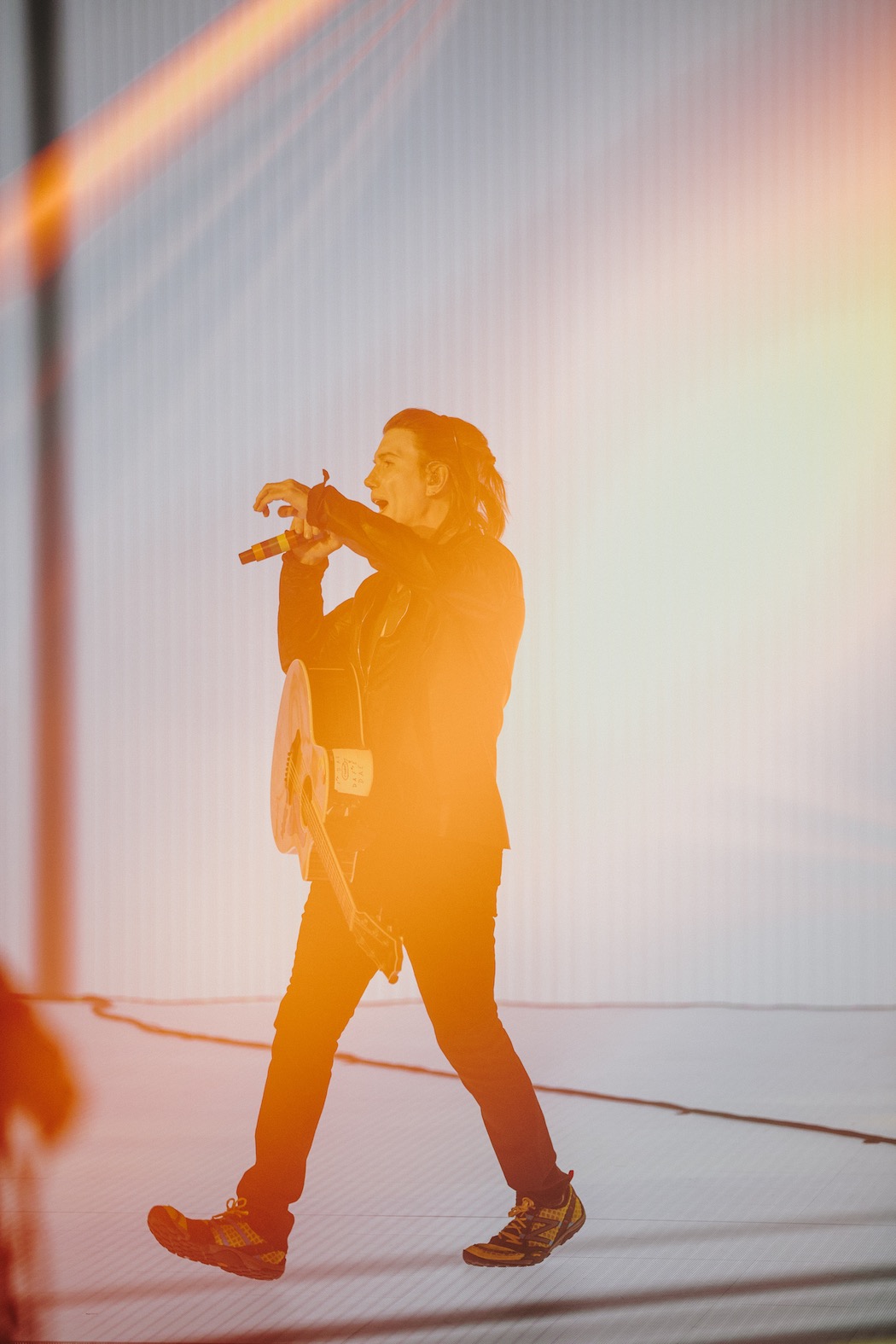
With so many holiday songs out there, what do you feel your album brings to the table?
Johnny Rzeznik: Well, I think it’s got some authenticity to it. I think the tongue is firmly planted in the cheek, it’s very tongue-in-cheek in a lot of spots and as it should be. But I also thought it was something that was gonna be useful this year. See because my whole theme in my life, and the question that I ask people, is like, “What did you do during the pandemic to try and help people out or to make things better?” We’ve all but been abandoned by our government, looks like it might change, but we were all forced to fend for ourselves, but more importantly than fending for yourself is looking out for your neighbor. Just something as simple as knocking on the door, “Hey, I haven’t seen you in a few days. How you doing? You all right? Good. Do you need anything?” I do a lot of these little three-song concerts, trying to raise money to help out wherever I can because there’s a lot of people in a lot of need. And there’s a big food drive initiative that we’re doing locally in the town I live in. And so we’re gonna do silent auctions and raffles for stuff, and because there’s an enormous jump in food insecurity, and this is in New Jersey too, so it’s kinda like…
Where are you guys in Jersey?
Johnny Rzeznik: We’re in Westfield. Yeah. You live in the city, right? Lucky. [chuckle] I lived in New York twice. Once when I was really young, and that was… That didn’t last long, and I had six roommates, it was really disgusting. And then I lived there for like six months later on, down in Battery Park City, which I actually liked, but…
A great place to be in non-pandemic times.
Johnny Rzeznik: Yeah. Well, you guys… I mean, look, 9/11, blackouts, financial disasters, New York always rises. The city always rises. And as callous and hectic as it can be, when people really need to come together, they do.
That's true – I think that speaks to everybody, everywhere. I don't think that's a uniqueness that comes to New York – people are strong when they need to be.
One of the songs that really stood out to me from this new batch opens with the line, “It's cold and it's grey, I'm in love with this day 'cause it's Christmas.” How did, ''This Is Christmas'' come about? What inspired you to write this song?
Johnny Rzeznik: We were saying… Well, really honestly, it was pretty simple, it was like, “We should write a couple of originals.” There’s great new Christmas songs. There’s some great ones. I mean, Mariah Carey’s song, that’s the biggest Christmas song ever. And it’s a great song. It’s very traditional in the Phil Spector kind of way. You know what I mean? And she did it so well. But I just wanted to write something that was kind of reflective and it’s sort of what I was envisioning was me driving up to see my family in Buffalo ’cause on Christmas morning, my wife and I drive with our daughter up to Buffalo to see my family, we do Christmas with them too. And it’s just… And I thought about how weird it was gonna be this year, but we’re still gonna do it and I just… Just something like… I mean that’s what Christmas is about. And the line that gets me in that song is, “Sing with me softly my dear, ’cause it’s all I can give you this year.” We’re all broke, everybody is broke. It’s like, this is where people might discover the real meaning of Christmas. I don’t know, because it’s like, “Look what I made for you,” or, “Hey, I drove 1000 miles to come see you and I don’t have any gifts, but I just wanna be here with you.”
The art of writing a good holiday song is not dead, it's just not getting on the radio, and this song stood out to me as something that was really nice because I think this is going to be a Christmas that's ultimately really sad. I like that it's more complicated.
Johnny Rzeznik: Yeah, well, I mean that’s one thing. I’ve gotten criticized for lyrics, my lyrics being sort of like, what… You’re all over the place. It’s like, “What is this trying to say?” It’s like, but I like to leave it being a little open for interpretation. I mean sometimes I just write a line ’cause I think it sounds cool, but… I like people being able to listen to that song, take away their own message, and then they own it and they feel like they’re invested in that piece of music.
Yeah, I think it's very Goo Goo Dolls to have a holiday song that doesn't have a clear good or bad message one way or the other.
Johnny Rzeznik: Yeah, well, we’re living on that, that edge of that knife right now.
We really are – but this song still has all the bells and whistles in it. How do you feel the song captures the holiday spirit or this holiday season?
Johnny Rzeznik: Well, I mean I think… I mean it’s obviously, it’s a melancholy-type thing. And I mean I think that that’s a big part of Christmas, because there is inevitably nostalgia attached to every Christmas because… And you think back, and you think about… I think about, excuse me, I think about Christmas as good ones from the past and ones that weren’t so good, and a couple that were very lonely, but that’s something that I think it’s good to reflect on. I think it’s good to reflect on the good and the bad, and… But to be teachable in those moments and learn like, well, how can I make it better? How can I make it better? That’s all I want, I just wanna make things better. I just wanna do something, and it can be… It can be ignored by the general public, I don’t care, but I just wanna know that I did me. That’s it, it’s all I got. That’s all I want.
I like people being able to listen to that song, take away their own message, and then they own it and they feel like they’re invested in that piece of music.
Do you have any personal favorite songs off this album? You shared about “You Ain't Got Nothin’” earlier; is that number one for your list?
Johnny Rzeznik: Yeah, that’s my favorite one because I’m a huge fan – Spike Jones and His City Slickers was a big inspiration for that, like a Spike Jones and His City Slickers and Cab Calloway kinda thing going on there. And I mean I love that song. I just think it’s funny, and it’s like what the story… How that song got started was I was telling these guys a story about, I was at a wedding, and this woman was standing behind me in the church with her two sons who were raising hell during the… During the wedding ceremony, and she grabbed them both and I could hear her, and she said, “Boys, if you don’t stop fighting right now, I’m telling you, Santa Claus and Jesus are looking down at you and you’re not gonna get anything for Christmas.” [laughter]
And those kids shut up so fast and I’m like… Yeah. And how many times when I was a kid did I hear that, “You ain’t get nothing for Christmas.” So it was like, yeah, you ain’t getting nothing for Christmas and of course, you know you’re gonna get it, but it’s such a potent threat for kids. It’s great.
The title, It's Christmas All Over, the words ''all over'' can mean something is bad, it's not happening. Or it can mean that it's Christmas everywhere. Was there an intentional word play there or am I just reading into things a little bit?
Johnny Rzeznik: I think you’re reading into it a little bit, but I like it, can I use it? We just named it “It’s Christmas All Over” as a sort of a tip of our hats to the late, great Tom Petty who was one of my favorite songwriters. I had the opportunity to sit and talk with him once for about a half an hour, and it was… Yeah, I was just blown away by what a really unique individual he was. And even when I was up my own ass being an indie rock snob and hating everything that was popular to impress my friends, I always listened to Tom Petty because he was always cool. Through all the various stages of his career. I mean he took a big risk working with Dave Stewart on that album, and that was a real change for him, and that blew him up even bigger, and then the stuff he did with Rick Rubin and the Jeff Lynne stuff was just… He was just always good, man yeah.
He was noble in his pursuits.
Johnny Rzeznik: Hell yeah.
You told me that you've been getting more and more into production and this album is heavily produced by you, alongside Jimmy and Brad. What was your experience like producing, and are you excited to do more of that with Goo Goo Dolls' music moving forward?
Johnny Rzeznik: Yeah, I think I need a really good producer though for the next record, but I want somebody who makes real music and someone who is very, very much a song guy, because I have a great engineer, don’t worry about it. It’s gonna sound great, but I want somebody who really can see the potential in a song and help bring that song out to its fullest, that’s what a really good producer does. And I was working with a guy in London and his name’s Antony Genn, and he was the guitar player in Elastica and a band called The Hours. He is an awesome producer ’cause he just… He just… He walked paces around the room and he’s like, “What are we saying? What are we trying to say? You gotta put your ass into it Johnny, this is… ” And it’s just… It’s exciting. The energy is infectious. And that’s what I like.
I found throughout our career that a lot of producers, they just sit there and tell you what you can’t do. And I’m just like, “Fuck that.” “No, you can’t do that.” “Why?” “Well, because I don’t think it’d be good, you’re paying me for my opinion.” “I guess, so. Okay, fair enough. I’m paying you for your opinion, but guess what, your opinion’s wrong.” So and then… And I’m like… And then I will go… I will hunt down people, and I’ve talked to a lot of old-school engineers and some great producers with truly… Producers who created music that has historical significance and their thing is about getting performances out of people, about encouraging it. Glen Ballard did a record for us, and every day I left that studio feeling like, “Wow, we did something really important.” Because he made it… He made it feel like you were doing something important. And he’s the true master at the craft of songwriting. And it was great to be involved with somebody who’s that into the songs.
Can you give us a little hint? What are you writing about these days, what's your mindset?
Johnny Rzeznik: Right now I’ve been collecting ideas, like I said, some of them were getting a little socially conscious. I wanna feel hope again – I just wanna feel hope again. I wanna feel like, “Yeah, you can’t run away from the reality of the times that we’re living in, but it’s… ” Whatever it is, it’s gonna be from the gut. I feel like writing from my gut more than my heart right now. The gut is more reality, the heart is more wistful and wishful, but…
We're past the time of wishing, and it's time to do some actions.
Johnny Rzeznik: Yeah, I can sit around and wish all day, but if I don’t get my ass out of bed and do something…
Nothing's gonna happen.
Johnny Rzeznik: No.
I feel like writing from my gut more than my heart right now. The gut is more reality, the heart is more wistful and wishful.
Well John, we started our conversation talking about the concert. One of the things I enjoyed from that concert is that you made sure to pepper in some messages of hope every now and then. You spoke directly into the camera to people you could not see at home, across the country and around the world and said, “We're gonna get through this.” Do you have any message to Goo Goo Dolls fans at this time?
Johnny Rzeznik: I think that, more than ever, you gotta reach out, and that’s what we already spoke about it. The only thing I have to say about this whole pandemic is, look, it should have never been politicized. And we’re in the worst case scenario that we could have possibly been in with it. But the thing is, it’s like 10 years from now, sitting around the table, I wanna know what does everybody… Everybody has to ask, “What can I do to help somebody else?” This time and I truly believe that about Americans and people in general. If you ask a group of people to make sacrifices and say, “Look, we’re all in this together, this is a fucked up situation and we gotta pull together and get through this and we’ll beat it, because that’s who we are.” But we’re so divided as a people, it’s like, look, there are things that are bigger than us, than our own personal selfish desires. “Oh I don’t wanna pay any more taxes, I don’t wanna do this, whatever.” Just lay it down for a minute. And what did you do during the pandemic to make things better? That’s all it matters.
It's inspiring to me to hear how much you've been doing. I read a little bit about it, but I had no idea the lengths to which you're going with these mini-shows, raising money for a whole slew of causes. You mentioned this food bank, this food drive that you're doing in your own hometown. I think that's very noble. I don't know a lot of artists who are at your level, who are putting in that much effort on a regular basis. Few folks actually strap on the boots and go out there and take actions on a more frequent basis.
Johnny Rzeznik: Thank you very much for that, by the way. Rick Nielsen from Cheap Trick, he’s very much into that. It’s like, “My time is worth more than my money,” and I was really taken by that statement when we were talking, he’s like, “My time is worth more than my money.” He’s like, “‘Cause I got a lot of money, I can throw money anyway I want. But if I put my time into something, that’s when it’s really valuable,” so…
Well, I appreciate your time today, thank you so much for talking to me. Thanks for your time, and wishing you, Goo Goo Dolls, and your family a lot of strength and good health this season.
Johnny Rzeznik: Thank you. Thank you. I’m wishing the same for you.
— —
:: stream/purchase It’s Christmas All Over here ::
— — — —

Connect to Goo Goo Dolls on
Facebook, Twitter, Instagram
Discover new music on Atwood Magazine
? © Ed Gregory
:: Stream Goo Goo Dolls ::

